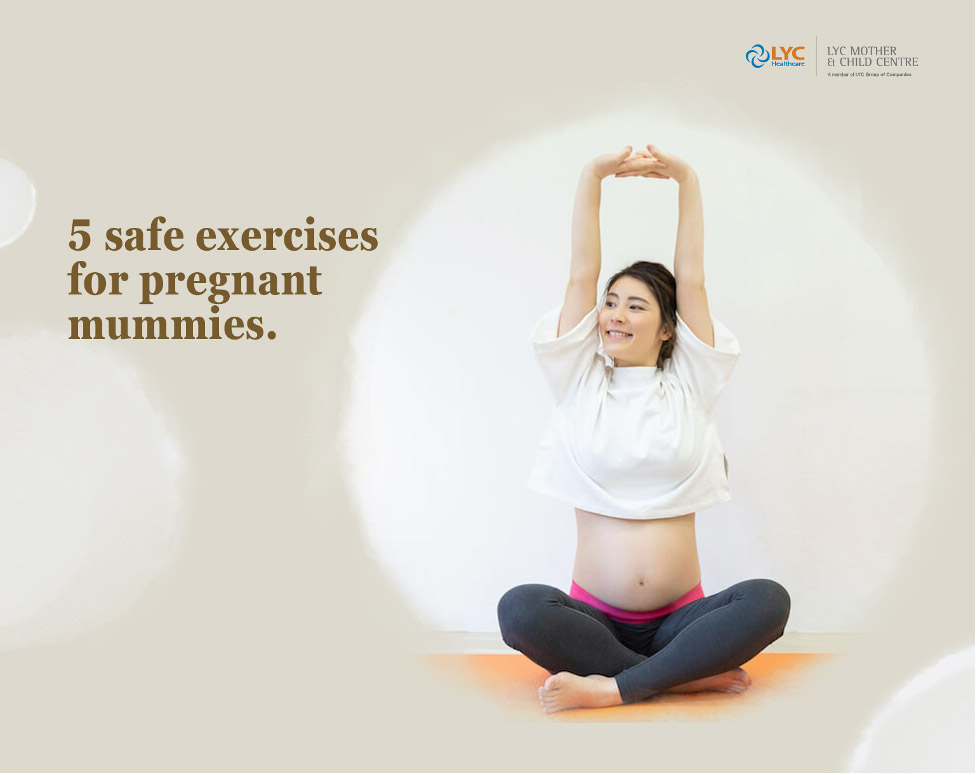
Who says you can’t exercise during pregnancy?
If you have been exercising regularly before pregnancy, it will be beneficial to continue doing so. Appropriate exercise can be done during pregnancy, but the appropriate exercise method needs to be determined based on the doctor's advice and personal circumstances.
Here are some examples of fitness activities you can do during pregnancy:
Easy walking is a great low-impact exercise that's safe for pregnant mothers and can help improve circulation and reduce muscle fatigue.
Swimming is a low-impact, rhythmic aerobic exercise that helps maintain flexibility and relieve joint pain while providing a full-body workout.
Pregnancy yoga classes are designed specifically for pregnant women and emphasise soothing postures and breathing exercises to help reduce stress and promote flexibility and balance.
It's okay to use lightweight dumbbells for some strength training, but avoid lifting heavy dumbbells.
Simple house chores such as cleaning the house, cooking, shopping, etc. can also help keep the body active.
It’s important to stress that every pregnant mother’s situation is different, so it’s best to seek your doctor’s advice before starting any exercise program. For mothers with a history of habitual miscarriage or premature birth, it is best not to exercise during pregnancy.
In addition, in the early stages of pregnancy, you need to choose the appropriate exercise methods to ensure the health of your baby and yourself. Here are some exercises you should avoid during early pregnancy:
These movements may put pressure on the abdomen, affect the baby's blood supply, and easily lead to dizziness and discomfort.
Your sense of balance may be weakened due to your pregnant state and you may fall easily, also the movements of your thighs and abdomen may have a negative impact on the baby.
Running can cause jerky movements and vibrations that increase the risk of miscarriage or premature birth, especially early in pregnancy.
Diving is an anaerobic exercise, which may lead to insufficient oxygen supply and is potentially dangerous to both mother and baby.
Avoid sports that have physical contact with others, such as football, basketball, hockey, etc., to prevent abdominal injuries from collisions or falls.
Physiological changes during pregnancy may cause ligaments to loosen. These movements can easily lead to joint and ligament damage, while affecting the blood supply to the placenta and increasing the risk of hypoxia for the baby.
In short, exercise during early pregnancy should be chosen carefully and avoid overly strenuous and high-impact activities to ensure the safety and health of mother and baby. It's best to seek your doctor's advice before starting or changing any exercise program, as every pregnant woman's situation is different.